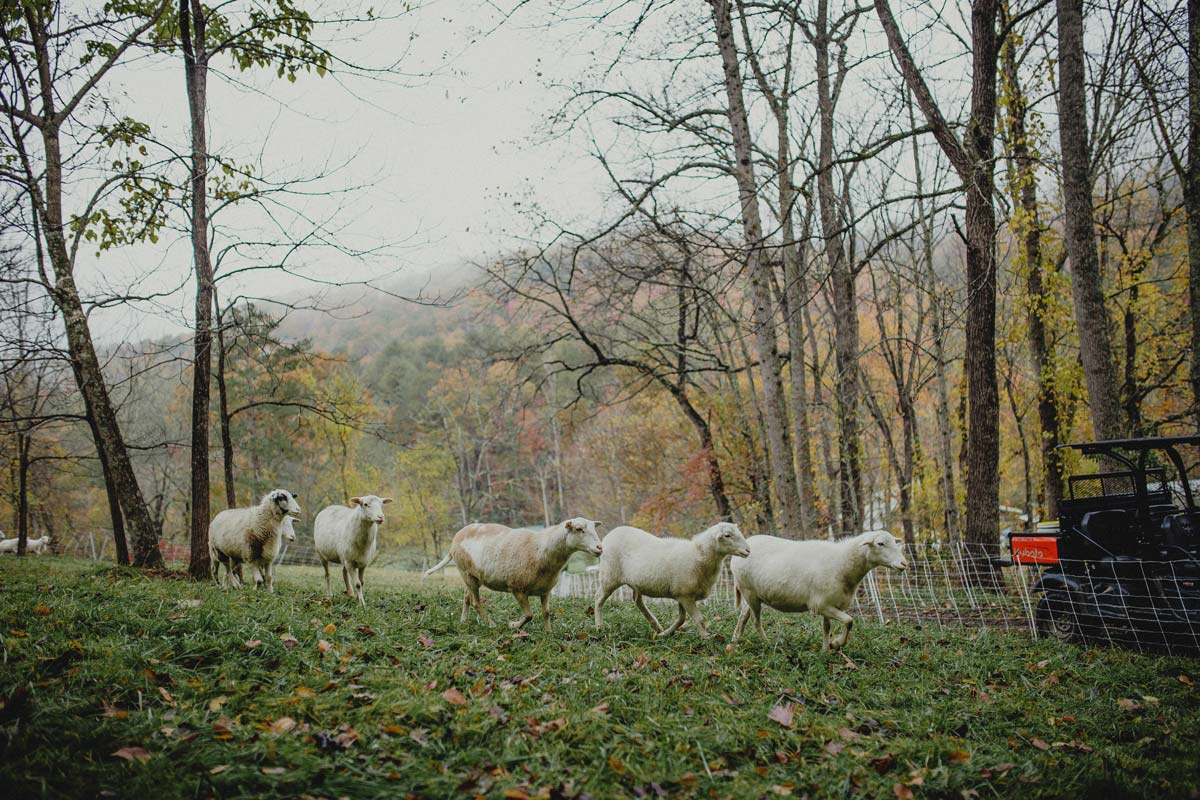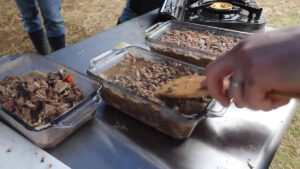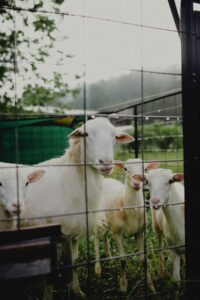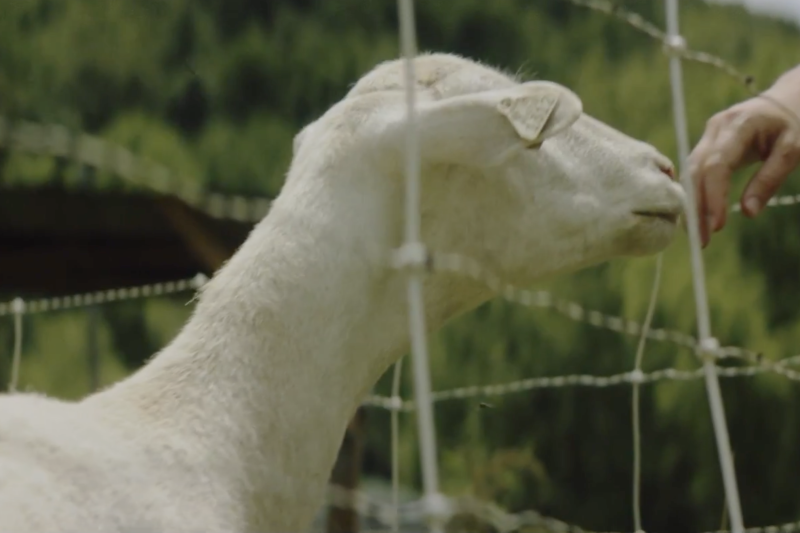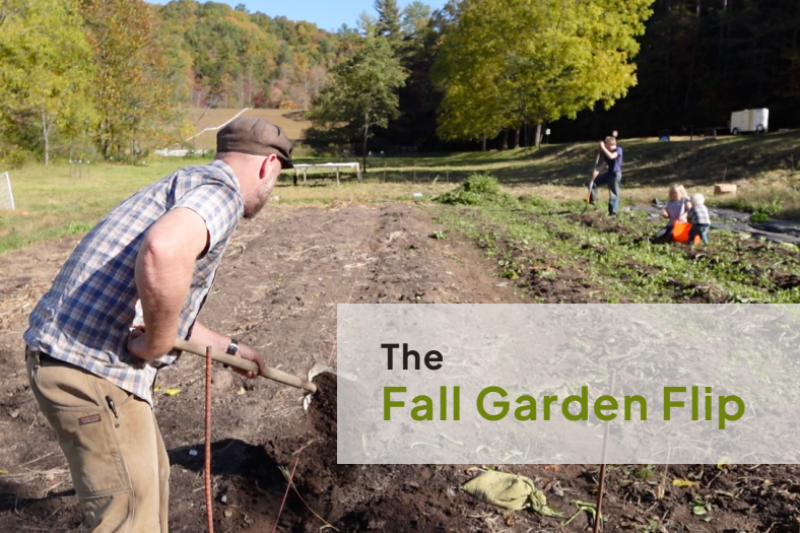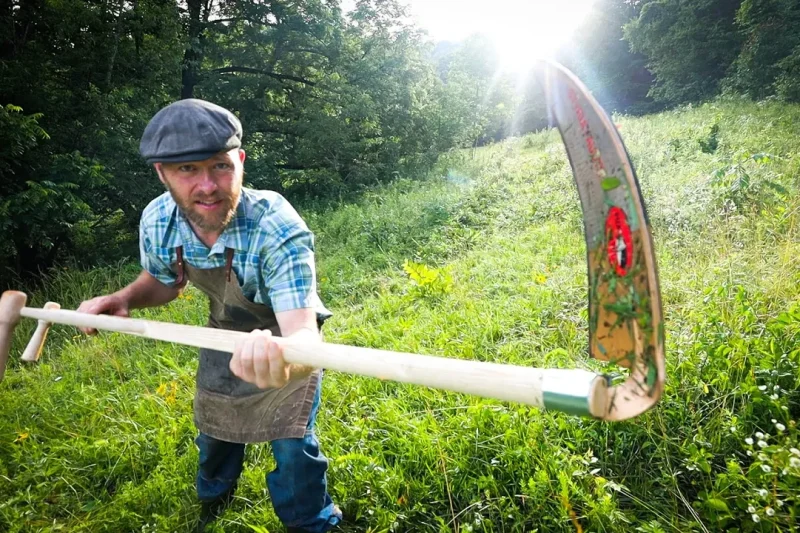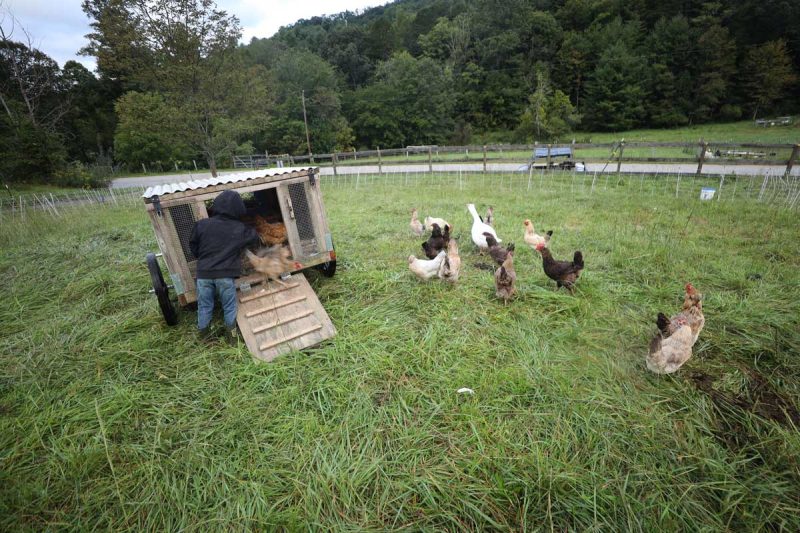Get happy! Because you can accomplish natural ways of parasite control and deworming sheep! There are safeguards to practice in selecting lambs, products to use for prevention, and flock control practices to put into your schedule.

Abundance +
This blog post is based on the question, “how do I naturally treat sheep for parasites?” Inside Abundance+ you can get access to the “Ask Justin” series, where I answer questions asked by Abundance+ members.
If you want access to all of the Ask Justin questions, you can sign up for a FREE seven-day trial of Abundance Plus. Anyone who signs up for A+ will also get exclusive discounts to Premier1, New Country Organics (where we get our organic alfalfa feed pellets), McMurray Hatchery, Johnny’s Selected Seeds, Meadow Creature and many more.
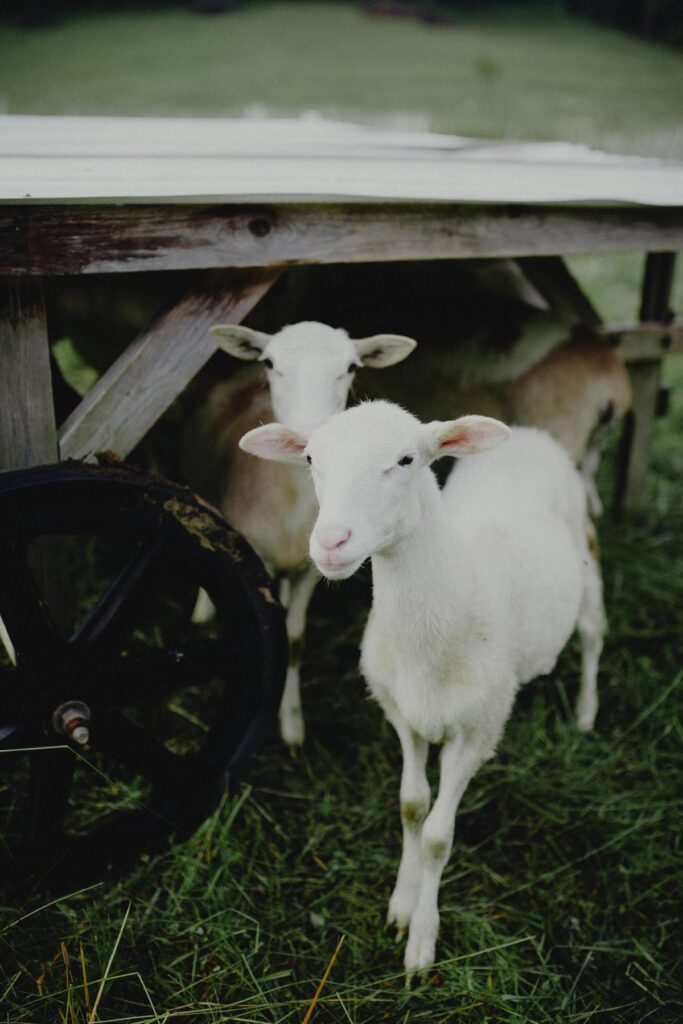
A Lesson Learned
Our first foray into owning sheep resulted in an unfortunate experience. We purchased five lambs from a farmer, practiced the basics of protection from predators, dewormed them with a garlic and molasses concoction, rotated pastures, and made sure they had the necessary minerals in their diet.
They did well throughout the summer but became sick in the fall. We tested the manure and discovered there was a heavy parasite presence. We did additional treatment with an acute herbal medicine called Land of Havilah. Even with our best efforts, four of the five sheep died.
We learned a few things through this experience. As hard as some life lessons are, they can compel us forward to better choices and methods if we allow them. For us, one lesson learned was to practice patience in sheep selection!

Sheep Selection
Most farmers will be treating their sheep with pharmaceuticals for parasites. While this is effective, it’s not how we have chosen to live. Our family tries to keep as close to a holistic approach as we can, including caring for our animals.
Purchasing sheep who have received pharmaceutical treatment and switching them to natural methods is possible, but you will likely lose some sheep. You will want to look for parasite-resistant genetics if going this route.
If you intend to raise sheep with a natural approach, we recommend finding a farmer raising them the way you want. Purchase grass-fed lambs before the farmer introduces any chemicals into their treatment.
For us, this meant getting on a year-long waiting list because these farmers are few and far between! However, we all know homesteading is a patience game!
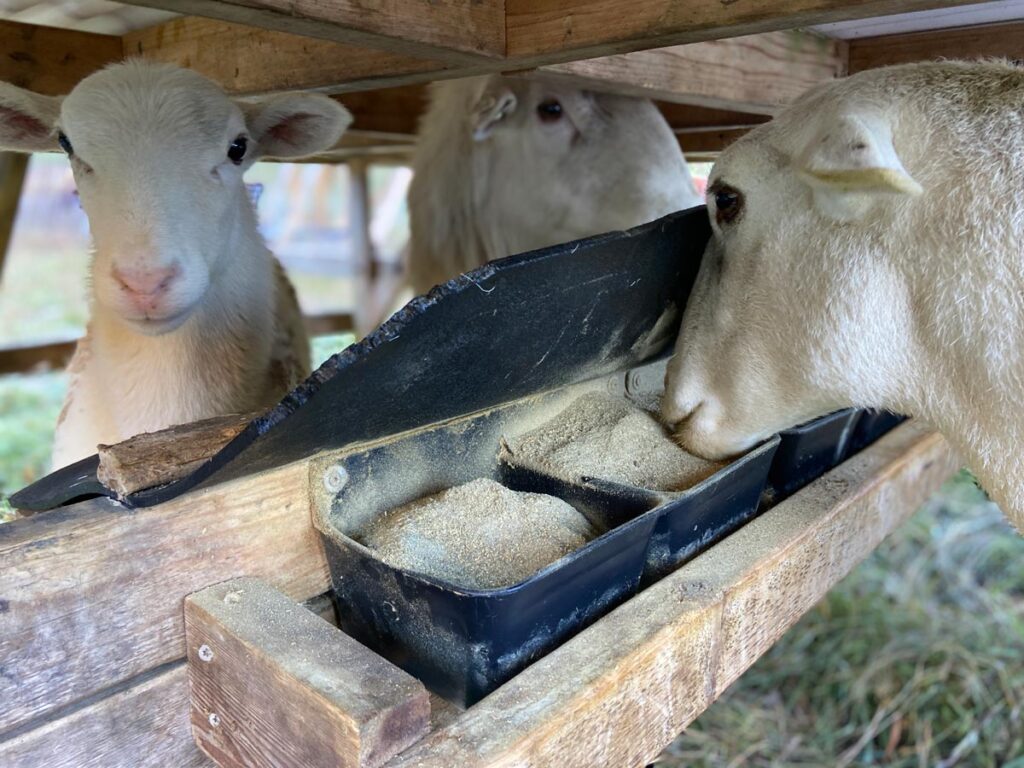
Symptoms of Worms
The symptoms will display in one or all of these ways. Be vigilant and treat when the first signs appear to prevent an infestation from occurring.
- Weakness – Look for signs of lagging behind the flock and inability to control its body.
- Anemia – This usually displays as pale eyelids or swelling in the jawline.
- Scouring – Watery, loose stools, commonly known as diarrhea.
- Lack of Appetite – Lack of appetite usually leads to weakness, as displayed above.

Deworming Sheep – Three Common Strategies
FAMACHA is a scoring chart with five colors to match the sheep’s lower eyelid color. The color indicates the barber pole worm infestation level. The chart helps decide what strategies to use to treat. If you are practicing natural methods, the FAMACHA is still helpful in determining the level of infestation.
There are several strategies for deworming treatment, but the most common are as follows:
- Tactical Deworming – This strategy treats when parasite egg counts are high. It results in using lower overall treatment.
- Salvage Deworming – Only treating animals with the highest parasite load and controlling by keeping the count down.
- Strategic Deworming – Treating the ewes before birthing with continued treatment every three to four weeks. Lambs receive their first treatment at six weeks, with ongoing treatment every few weeks.
Deworming Sheep Naturally
There are several natural practices to help your sheep stay healthy and thrive. You can read here for more in-depth information on raising sheep naturally.
It’s important to note that I am not a certified veterinarian or an herbalist. This post is not intended to diagnose or treat but is for informational purposes only. Please contact your animal care professional before introducing new herbal remedies into their wellness routine.
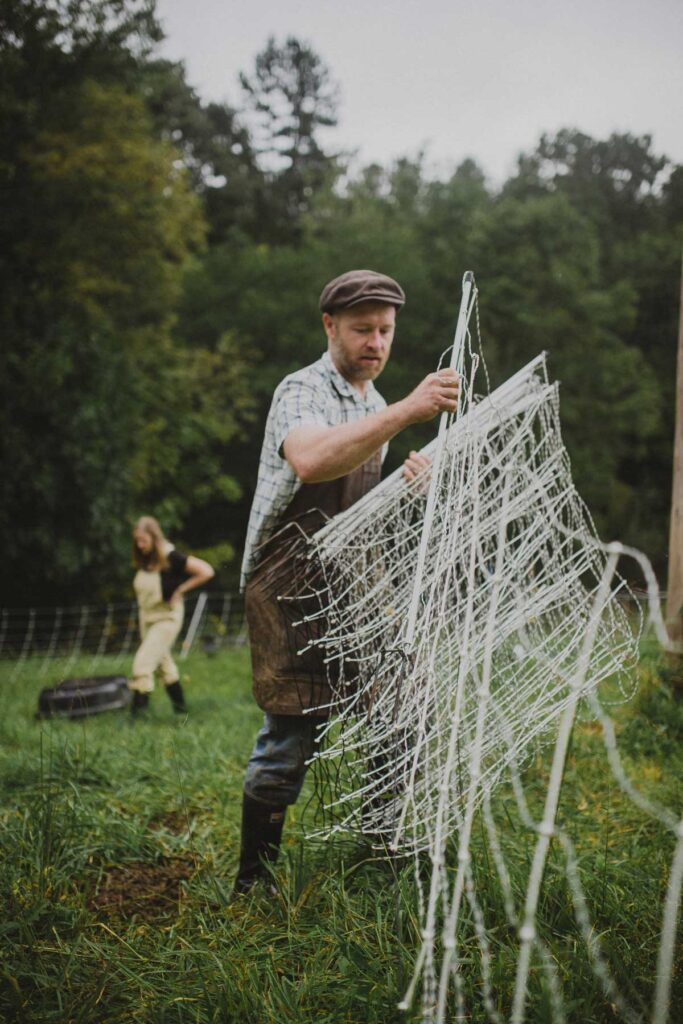
Pasture Rotation
Pasture management needs to be your top priority! Never graze sheep on short grass. Taller grass gives more surface area for sheep to feed, resulting in less surface grazing and reducing the volume of worms. Move them on a regular schedule.
Multispecies Grazing
Horses and cattle do not share worms with sheep. If you have multiple animal species coexisting in the same pasture, the other animals can eat a worm egg that doesn’t pose a risk to them reducing the count and leaving less for the sheep to consume.
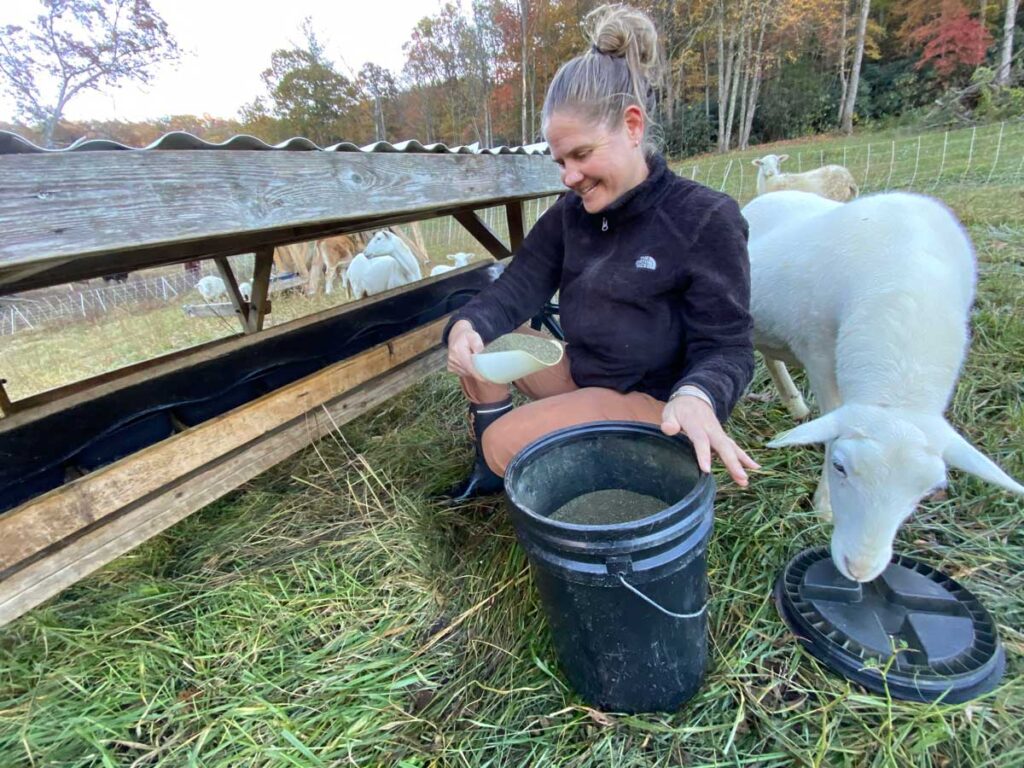
Natural Products for Parasite Resistance and Treatment
There are several natural products to try in deworming sheep treatments.
- Mineral Supplementation – When ruminants’ minerals are in balance, their digestion will improve, and they will develop more resistance to parasites. Here’s more on our mineral feeding system with plans to build a mineral-shaw (shown above).
- Apple Cider Vinegar (ACV) – This is a long-standing and well-known natural antibiotic with multiple health benefits. You can mix ACV with molasses to improve the taste. Give approximately 5mls a day.
- Garlic – Use garlic as a worm-preventative and effective dewormer treatment. It aids in digestion and decreases worm counts. You can also mix garlic with molasses; try feeding it to them right out of your hand.
- Molasses – Molasses is more of an additive to garlic and ACV to help your sheep want to eat the above two potent flavored “treats.” However, there is some evidence that it improves digestion.
- Shaklee Basic H – Shaklee Basic H is a natural and safe deworming product that you can administer every two weeks.
